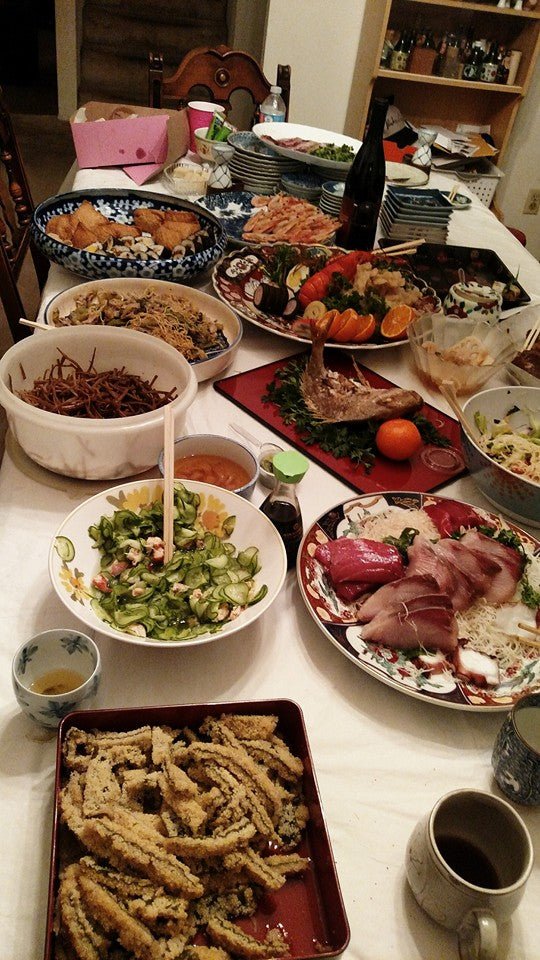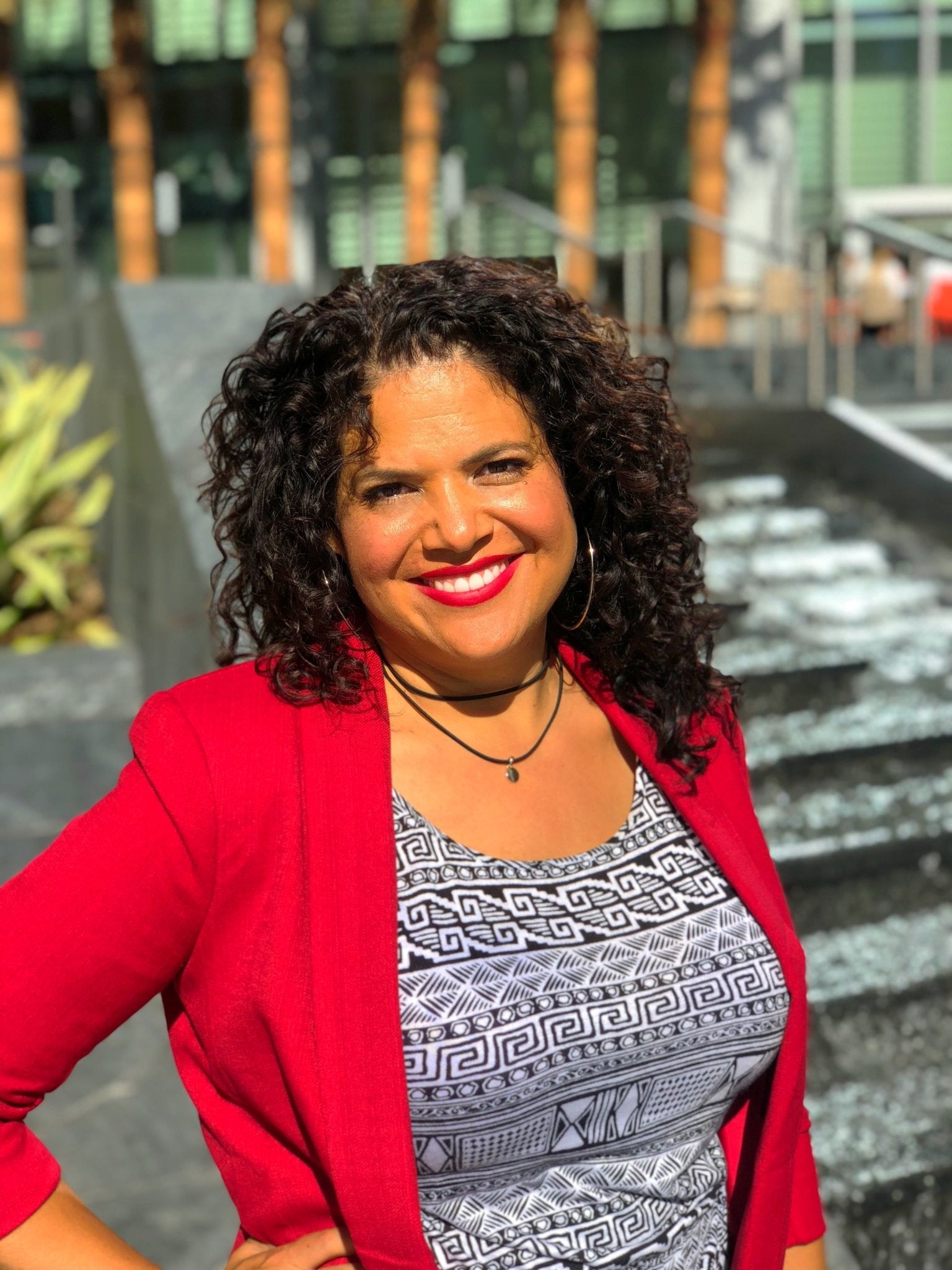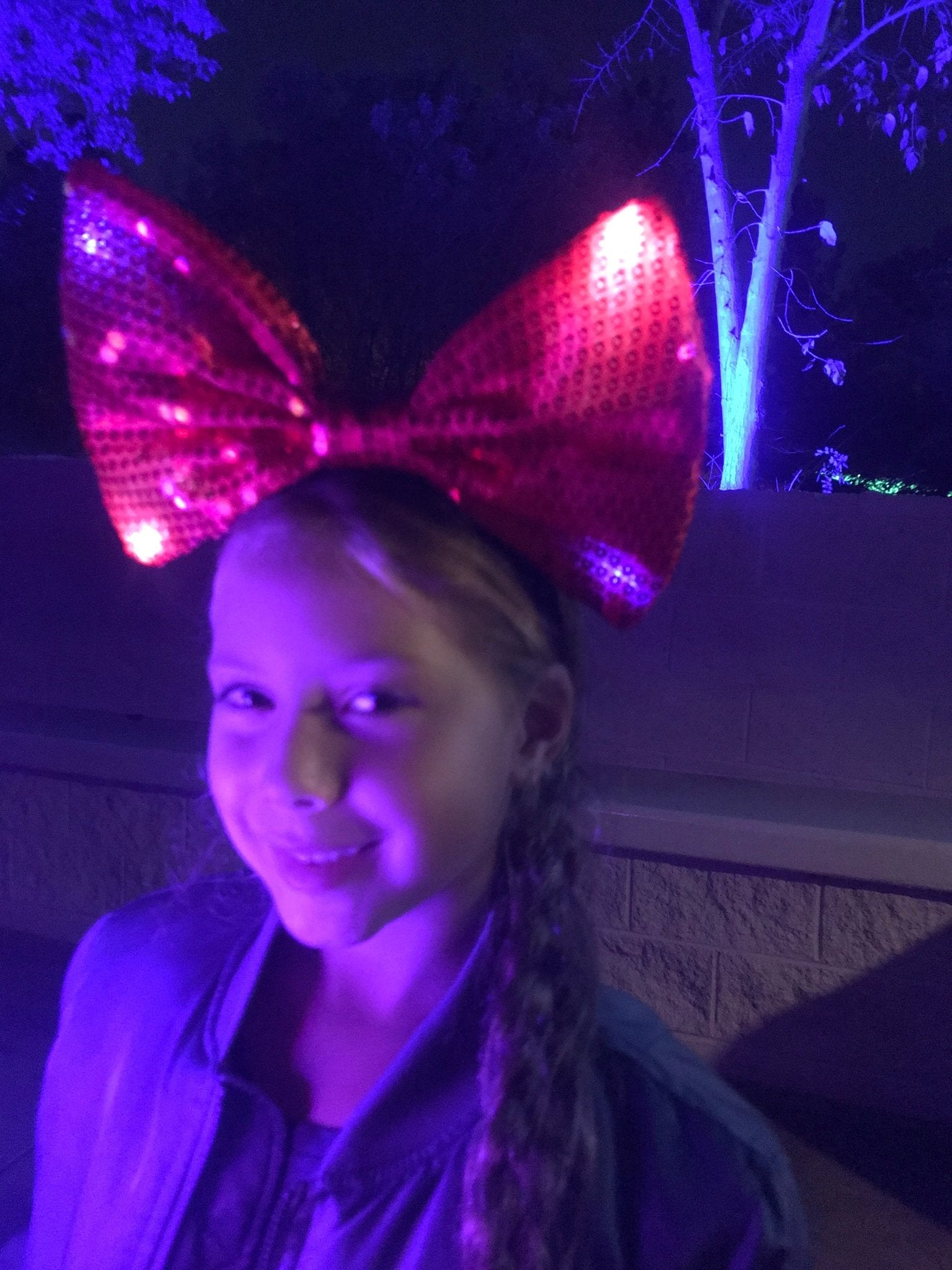
Black in a Japanese Family: Multicultural Holidays
Black in a Japanese Family: Multicultural Holidays
By Tam Luc
When I was a flight attendant I lived in a house full of Hawaiians of Japanese descent. Hawaiian Japanese people are quite different from Japanese nationals. However, the experience exposed me to Asian Americans and made me incredibly comfortable around Japanese people. Maybe that’s why my first husband was Japanese. Once married into his family, I became entrenched in that culture.
Japanese people immigrated to America by way of Hawaii in the late 1800s. Without getting into too much historic detail, my ex-husband‘s father was an atomic bomb survivor from Hiroshima. During the war, my ex-mother-in-law, born in the US, was in the internment camps when she was a young girl. As you can imagine, their experience affected their family greatly in uncommunicative ways. Although, I was extremely curious about many of the details of their past, I was never permitted to ask Jichan (grandpa) about the atomic bomb or Hiroshima, so I will just give my observational experience while apart of their family.
Before our son was born, we opted to move out of our apartment and into the house with his family. They had a very big house. It turns out that my ex-husband‘s father‘s family was pretty well off in Japan. We did not experience any of that wealth, which is another story, but we did live in a very nice home in California. Because of this, I lived a traditional Japanese life for ten years. I only met a few cousins from the father’s side of the family but the mother’s side was very close. After the war and after Japanese-Americans were released from the internment camps they were given reparations to help those that lost their homes and their businesses because of the war. Determined to keep the family close, my ex-mother-in-law‘s family bought an apartment building so everyone could stay together. Although that building is gone, the family remained very close, celebrating every occasion together including the most important of Japanese holidays, New Year’s Day, shogatsu. What I noticed was their dedication to making sure these holidays were preserved and passed down to the next generation.
New Year’s Multicultural Traditions
As an American, In the past, New Year’s Day for me was spent nursing a headache from New Year’s Eve. That was the extent of what I knew about it. However, as I became more curious about my culture I started to research how, African-American people celebrated New Year’s day. Especially because my married life was surrounded by Japanese culture, I was determined to make sure my son had a balanced experience of himself.
Some African Americans know anything about our early traditions because they were lost. But I think it’s important because its apart of the black experience and something we should preserve. While I was happy to enjoy the traditional Japanese menu with the family, I also was excited to share a few dishes to educate them on my culture. Graciously they embraced my contribution and added it to the mix.
African American New Years Foods:
My mother’s ancestry comes from the south and they made black-eyed peas with rice (hoppin-John), cabbage or greens with cornbread every New Year’s Eve. My mother didn’t know why but it was passed down from her mother. It turns out that it was all about good luck. There are many other explanations for these tradition but what I learned was both black eyed peas (pennies) and greens resemble US currency. The idea is, if you eat these dishes you will have good luck and prosperity throughout the new year.
In the south, pig ears, feet, intestines and every other pork part is consumed. After slavery, many black Americans learned how to season and make the most of what they had. While not regularly consumed by African Americans today, pork was considered a symbol of health and prosperity because one pig could feed a family throughout the winter.


Japanese New Years Foods:
It turns out that like African Americans, Japanese traditions are very similar. It’s all about good luck and prosperity. I really could go on forever about this topic but here are a few examples:
1. The house must be clean and all food must be cooked before midnight. Any work done on New Year’s day is considered bad luck for the year.
2. First thing in the morning - Sake - Yay - Good Luck for all
3. You must spend the whole day with the people you love
4. The menu: Gobo Kobumaki, Renkon no Nitsuke, Ebi no Shioyaki, Datemaki, Kohaku Namasu and many more.


Every dish has a meaning leading you back to good fortune, good health, prosperity, sunny days, energy, plentiful crop, and happy days ahead.
In Summary: Every culture wants to live a healthy, prosperous and joyous life. New Years represents a new, fresh start for most people leaving behind the pain of the past and celebrating with loved ones. If you have empathy, and pay attention to different cultures you will notice how similar they really are.




Leave a comment
This site is protected by hCaptcha and the hCaptcha Privacy Policy and Terms of Service apply.